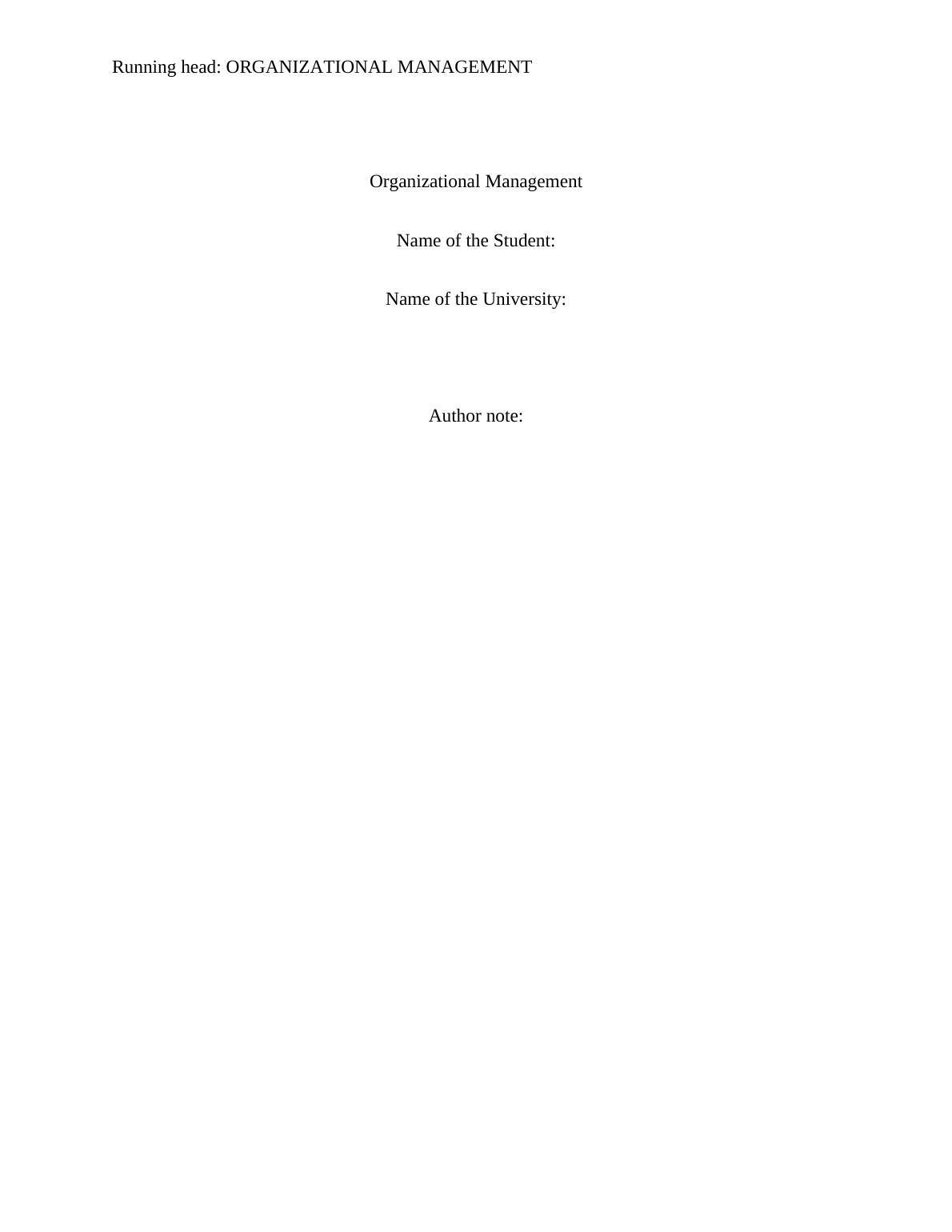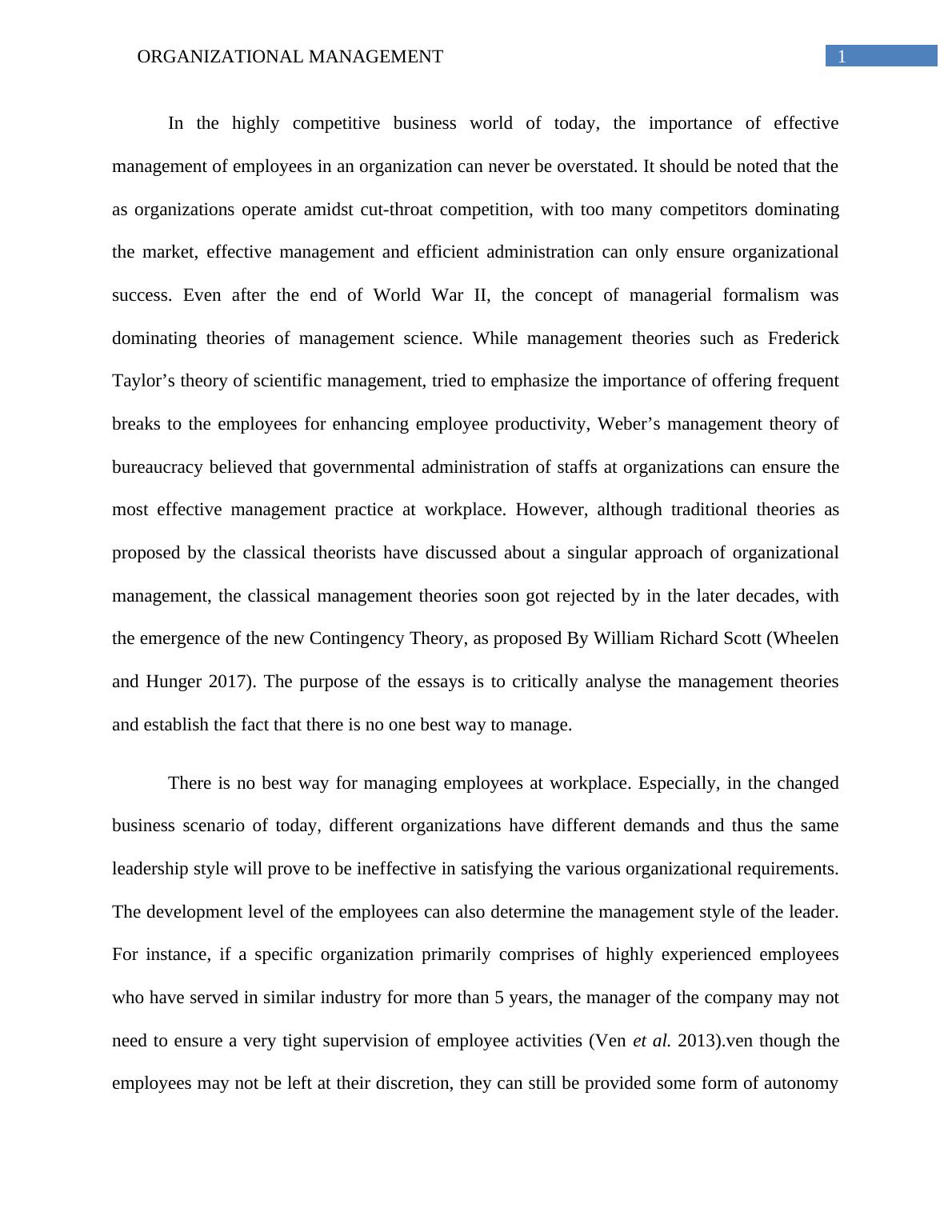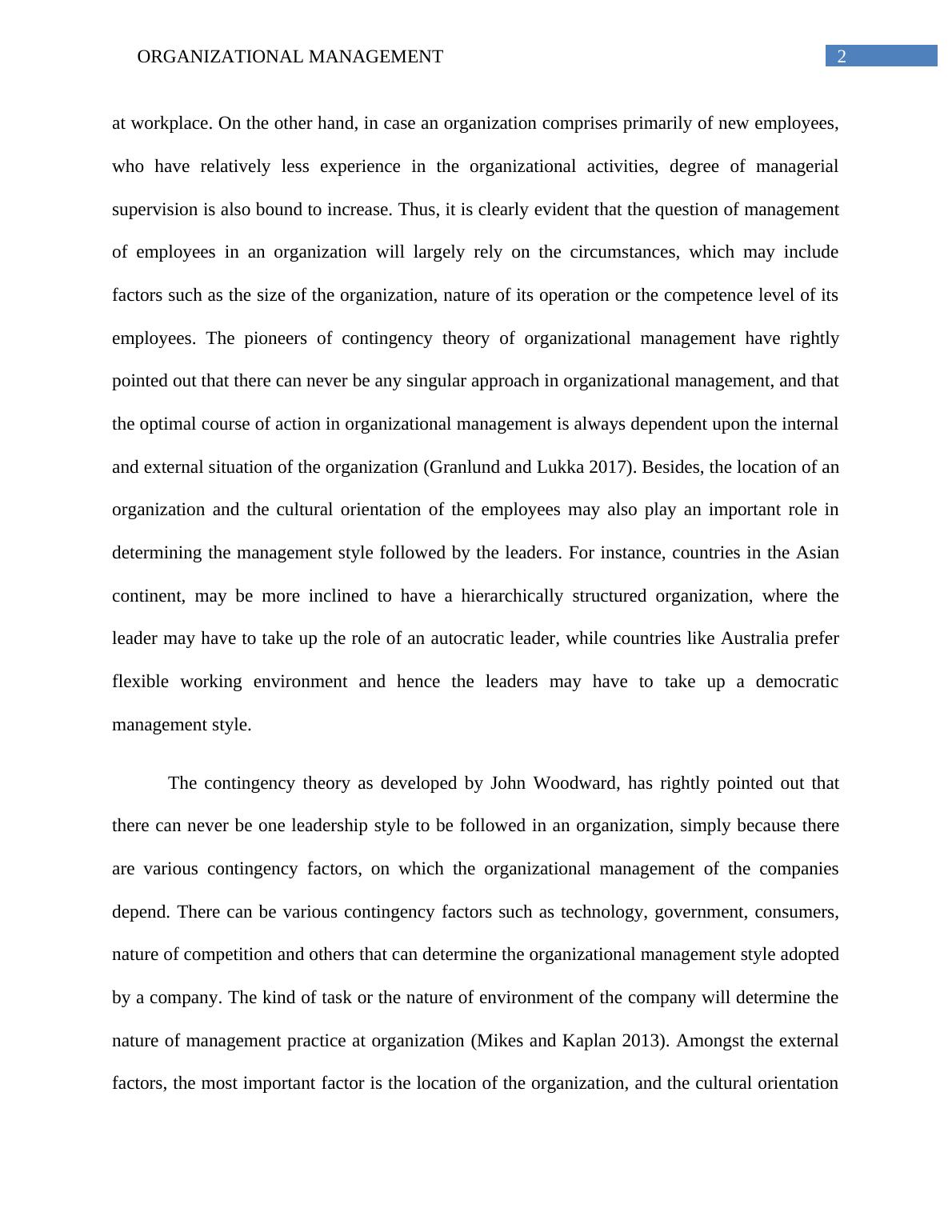Effective Management of Employees in an Organization
Added on 2020-04-01
7 Pages1902 Words67 Views
Running head: ORGANIZATIONAL MANAGEMENT Organizational ManagementName of the Student:Name of the University:Author note:

1ORGANIZATIONAL MANAGEMENTIn the highly competitive business world of today, the importance of effectivemanagement of employees in an organization can never be overstated. It should be noted that theas organizations operate amidst cut-throat competition, with too many competitors dominatingthe market, effective management and efficient administration can only ensure organizationalsuccess. Even after the end of World War II, the concept of managerial formalism wasdominating theories of management science. While management theories such as FrederickTaylor’s theory of scientific management, tried to emphasize the importance of offering frequentbreaks to the employees for enhancing employee productivity, Weber’s management theory ofbureaucracy believed that governmental administration of staffs at organizations can ensure themost effective management practice at workplace. However, although traditional theories asproposed by the classical theorists have discussed about a singular approach of organizationalmanagement, the classical management theories soon got rejected by in the later decades, withthe emergence of the new Contingency Theory, as proposed By William Richard Scott (Wheelenand Hunger 2017). The purpose of the essays is to critically analyse the management theoriesand establish the fact that there is no one best way to manage. There is no best way for managing employees at workplace. Especially, in the changedbusiness scenario of today, different organizations have different demands and thus the sameleadership style will prove to be ineffective in satisfying the various organizational requirements.The development level of the employees can also determine the management style of the leader.For instance, if a specific organization primarily comprises of highly experienced employeeswho have served in similar industry for more than 5 years, the manager of the company may notneed to ensure a very tight supervision of employee activities (Ven et al. 2013).ven though theemployees may not be left at their discretion, they can still be provided some form of autonomy

2ORGANIZATIONAL MANAGEMENTat workplace. On the other hand, in case an organization comprises primarily of new employees,who have relatively less experience in the organizational activities, degree of managerialsupervision is also bound to increase. Thus, it is clearly evident that the question of managementof employees in an organization will largely rely on the circumstances, which may includefactors such as the size of the organization, nature of its operation or the competence level of itsemployees. The pioneers of contingency theory of organizational management have rightlypointed out that there can never be any singular approach in organizational management, and thatthe optimal course of action in organizational management is always dependent upon the internaland external situation of the organization (Granlund and Lukka 2017). Besides, the location of anorganization and the cultural orientation of the employees may also play an important role indetermining the management style followed by the leaders. For instance, countries in the Asiancontinent, may be more inclined to have a hierarchically structured organization, where theleader may have to take up the role of an autocratic leader, while countries like Australia preferflexible working environment and hence the leaders may have to take up a democraticmanagement style. The contingency theory as developed by John Woodward, has rightly pointed out thatthere can never be one leadership style to be followed in an organization, simply because thereare various contingency factors, on which the organizational management of the companiesdepend. There can be various contingency factors such as technology, government, consumers,nature of competition and others that can determine the organizational management style adoptedby a company. The kind of task or the nature of environment of the company will determine thenature of management practice at organization (Mikes and Kaplan 2013). Amongst the externalfactors, the most important factor is the location of the organization, and the cultural orientation

End of preview
Want to access all the pages? Upload your documents or become a member.
Related Documents
Essay on Understanding Organizational Behaviourlg...
|9
|2152
|236
Organizational Behavior Assignment Essaylg...
|8
|2138
|380
The sustainable organizational designlg...
|9
|1551
|43
Insight Into the Organization Theory - Essaylg...
|12
|2795
|16
Business Managementlg...
|5
|920
|77
Classical Management Theories and Leadership Styles - PDFlg...
|13
|4351
|402
